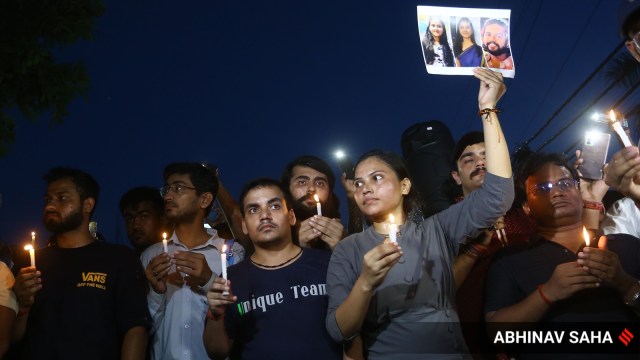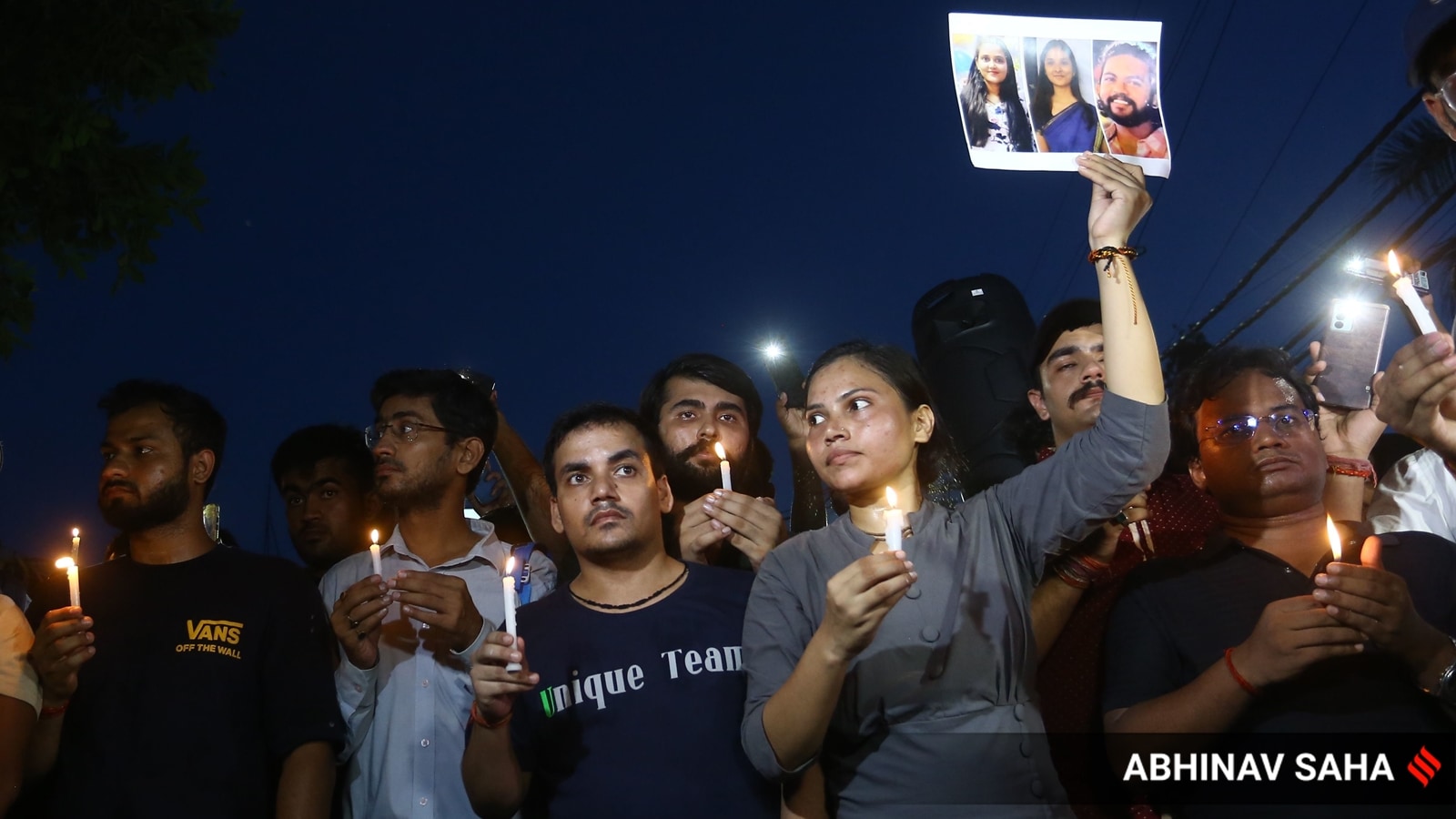
Written by Sanketh Kumar Ajmera
Last month, the death of four civil services aspirants’ in the basement of a coaching centre in Old Rajinder Nagar (ORN) took me back to when I decided to take the Civil Services Examination (CSE). A friend who had recently joined the Indian Administrative Services (IAS) took me on a tour of ORN in New Delhi. Our exploration of the thoroughfare connecting the Vajiram and Ravi Institute to the famed Agarwal Sweets unveiled a bustling landscape, lined with coaching institutes, bookstores, and hole-in-the-wall eateries. My friend emphasised that every CSE aspirant traverses this path at least once, whether to buy essential books like M Laxmikanthʼs Indian Polity, write CSE mains practise tests or attend mock interviews. Having just transitioned from the tranquillity of academia, I found the experience overwhelming. Nevertheless, I promptly secured rented accommodation — relocating to ORN appeared to be crucial to achieving success in the CSE.
Just as it did for me, the allure of the civil services, with their esteemed reputation and job security, draws many young graduates to the CSE. But it is the coaching institutes that draw them to Delhi and, inevitably, to ORN and the surrounding areas. Shortly after moving there, I found myself in a two-and-a-half-hour queue among hundreds of hopefuls, vying to obtain a “ticket” to enrol in one of the highly-publicised foundation courses — reminiscent of securing a Tatkal train ticket before the advent of online booking systems. Amidst intense commotion and drama, I was among the “selected few” who received a ticket containing a unique token number. Feeling fortunate, I promptly paid Rs 1,60,000 lakh to secure my seat in their year-long foundation programme. Despite having not yet commenced my preparation, I felt like I had travelled some distance in my competitive journey ahead already, only to withdraw from the course within a few months.
It is no surprise that the coaching institutes of ORN exploit the Indian education system’s traditional emphasis on offline learning. They offer year-long, classroom-based foundation programmes that cost nearly Rs 2 lakh. To justify these extravagant fees, the institutes devise various creative programmes from time to time, some as outlandish as handwriting improvement sessions — implying that extra marks are awarded for good handwriting. Despite the high financial costs, moving to ORN and joining a coaching institute seems like a rational decision for the average aspirant. During my preparation between 2021 and 2023, I spent Rs 1,60,000 lakh for General Studies coaching and Rs 70,000 for my Optional subject, only to withdraw within months after realising that these institutes provided no better value than resources available in the market for a fraction of the cost. I moved out of ORN around the same time, as living there did not offer any leverage either. Nevertheless, had I not moved to ORN and enrolled in one of the prominent coaching institutes, I would have been haunted by the fear of missing out on essential guidance. This fear of being left out brings thousands of aspirants to ORN each year, regardless of the cost.
Every square inch of the area is filled with coaching institutes run by self-proclaimed “civil services experts”. These influencer-style experts, who insist on being addressed with titles like “sir” or “madam”, prescribe everything from the best pen for writing answers to offering guaranteed selection upon subscription to their programmes. This environment often attracts and exploits innocent aspirants, particularly those from rural backgrounds and low-tier colleges, who become willing to spend large sums for seemingly expert guidance. Given the limited number of seats each year, only a few succeed, while many remain determined to try again. This demand fuels a thriving market for coaching institutes and accommodation in ORN.
To make matters worse, the rise of social media has further exacerbated the demand for coaching centres in ORN. The mock interviews, often staged in studio-like settings, are uploaded to YouTube. This has led many, including parents, to mistakenly believe that they accurately reflect the CSE interview process. In reality, the CSE interviews are conducted behind closed doors and are shrouded in complete secrecy. Moreover, there is a vast difference between the personality test administered by the UPSC and the mock interviews. The latter comprise entertaining questions under the guise of intellectual discussion and serve as valuable marketing tools for the coaching centres. After conducting a mere 30-minute interview, these institutes often leverage information asymmetry to inflate their importance to young, unsuspecting aspirants.
After spending only a few weeks in ORN, it quickly became evident that the experience presented significant survival challenges. Soaring rents, poor sanitation, unhygienic eateries, and competition for basic amenities are among the daily hardships an aspirant must endure. All of this stems from our subscription to the beautifully wrapped dreams that these institutes sell. Meanwhile, the coaching centres and supporting businesses exploit this demand by increasing fees, relocating libraries to less accessible areas, raising book prices, and introducing new products that promise top ranks at a defensible premium.
It is antithetical to the democratic ethos of the CSE to claim that success is guaranteed by enrolling in a specific coaching institute, residing in a popular locality, and studying religiously from prescribed books for as many hours as possible. It is often argued that aspirants migrate to ORN in search of like-minded peers who can boost their preparation efforts. However, fixating on a single location creates a tragedy-of-commons situation, resulting in numerous practical challenges. The dire conditions experienced by thousands stem from unrealistic expectations set by opportunistic profit maximisers who perpetuate these beliefs. The recent tragic deaths of four UPSC aspirants is a wake-up call in this regard.
Strengthening regulations in the coaching sector, for infrastructure and standard practices, can mitigate some of the damage; however, the problem of exaggerated narratives regarding the significance of popular coaching centres and areas like ORN will persist until the demand for them is curtailed. The entire aspirant community has demonstrated remarkable courage in supporting their peers in the wake of the recent tragedy. Therefore, I earnestly request all aspirants to directly engage with the CSE by placing complete trust in the UPSC CSE guidelines, syllabus, and previous yearsʼ question papers. It is crucial to approach every piece of feedback with discernment. By doing so, aspirants need not rely on self-promoted intermediaries, and the demand for overhyped products will diminish. Ultimately, it is through dedication, originality, and oneʼs inherent qualities that a candidate can successfully clear the CSE and emerge as a committed civil servant.
The writer is an IAS officer. Views are personal



